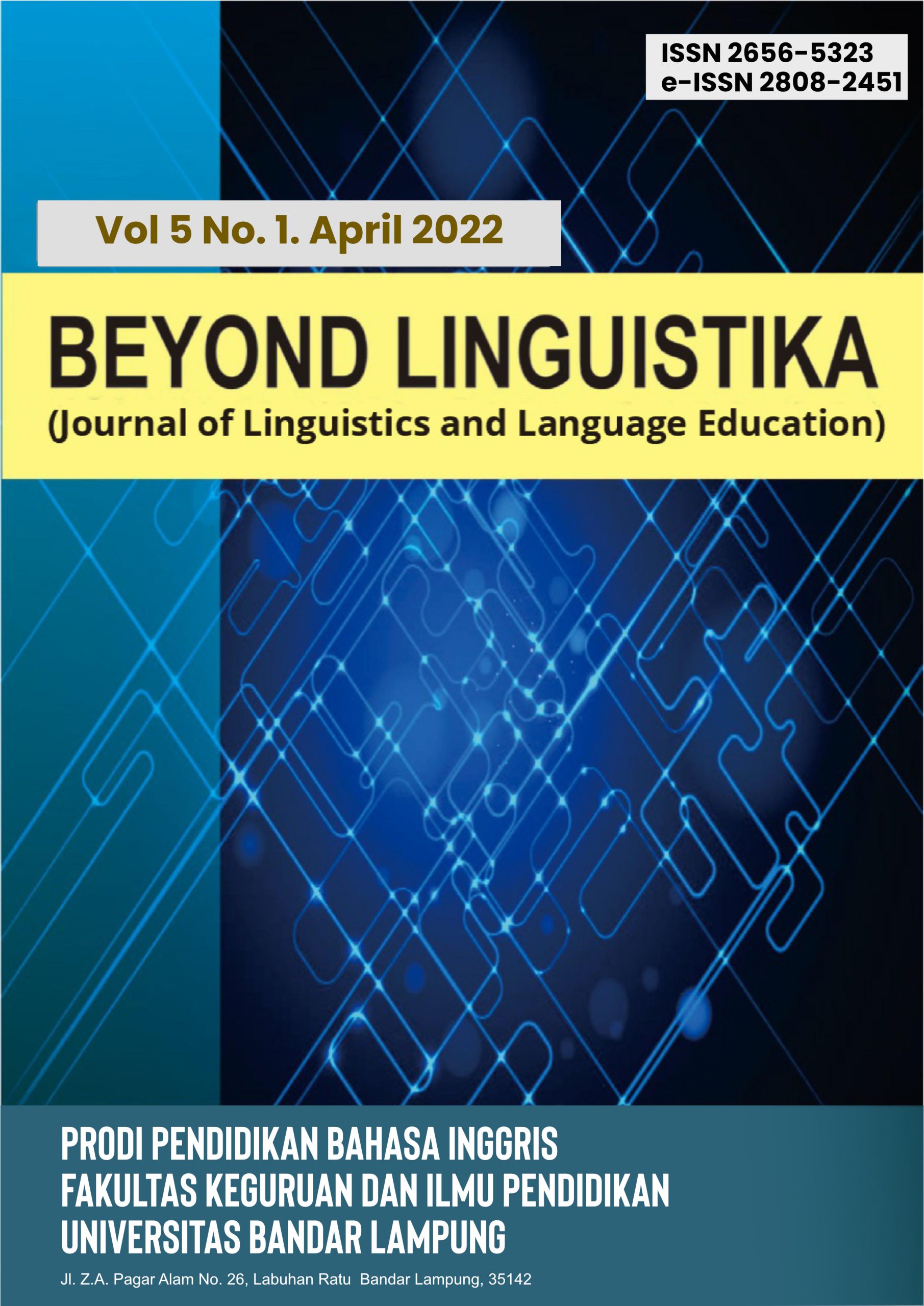THE INFLUENCE OF THE ENVIRONMENT ON MISPRONUNCIATION OF ENGLISH COMMON WORDS IN INDONESIA (CASE STUDY)
Abstract
English becomes a very important language in Indonesia. Everyone seems to be obliged to learn English even more so this language has become a compulsory curriculum in school. The influence of the use of English can be up to the use of new words that seem difficult to replace with the Indonesian language. Because English pronunciation is more complicated than Indonesian pronunciation, the Indonesians are hard to pronounce exactly as the original. This different pronunciation is already wrong but has become a common pronunciation dictionary. Every pronunciation that comes from variety of backgrounds and those backgrounds really decide how good a person listen and say standard pronunciation of English.
Keywords
Full Text:
PDFReferences
Aryani, Dina. Marbun, Rismaya. Riyanti, Dwi. (2013) Improving Students’ Pronunciation By Using Reading Aloud In Junior High School.English Education Study Program and Language and Arts Education Departement,Teacher Training Education Faculty of Tanjungpura University in Pontianak.
Bilash. (2011). Competence Vs Performance. Retrieved from http://sites.educ.ualberta.ca/staff//olenka.bilash/bestofbilash/competencyperformance.html
Bogenschneider, Karen. Johnson, Carol (2015). Family Involvement in Education: How Important it is? What Can Legislators do? University of Wisconsin-Madison, University Extension. Madison
Bright, William (1998). Social Factors in Language Change. Willey Black Well Publishing.
Butters, Roger et al. (2013). The Production of Economic Knowledge in Urban and Rural Areas: The Role of Student, Teacher, and School Characteristics. Southern Agricultural Economics Assosiation: The Role of Student, Teacher, and School Characteristics.
Creswell, John W. (2012). Educational Research: Planning, Conducting and Evaluating Quantitative and Qualitative Research, Fourth Edition, Boston, Pearson
Edo, Marza N. (2014). Pronunciation and Comprehension of Oral English in the English as a Foreign Language Class: Key Aspects, Students’ Perceptions and Proposals* Journal of Language Teaching and Research, Vol. 5, No. 2, pp. 262-273, English Studies Department, Univesity Jaume I, Castelōn, Spain.
Hussein, El-Qomari Abdallah (2016). Factors Affecting Students’ Achievement in English Language Learning. Journal of Educational and Social Research. MCSER Publishing, Rome-Italy.
Kerswill, Paul (2012). Language Variation Social Factors: Class and Ethnicity. White Rose: University of New York
Khamkien, Attapol (2010). Thai Learners’ English Pronunciation Competence: Lesson Learned from WordStress Assignment. Journal of Language Teaching and Research, Vol. 1, No. 66, 757-765. Academy Publisher: Finland. NEA. (2003). Parent, Family, Community Involvement in Education. NEA Education Policy and Practice Department. Washington DC.
Nordquist, Richard (2017). Linguistics Competence. Retrieved from https://www.thoughtco.com/what-is-linguistic-competence-1691123
Völkel, Gabriela et al. (2016). The Impact of Gender, Socioeconomic Status, and Home Language on Primary School Children’s Reading Comprehension in KwaZulu-Natal. International Journal of Environmental Research and Public Health.
DOI: http://dx.doi.org/10.36448/bl.v1i1.1342
Refbacks
- There are currently no refbacks.















